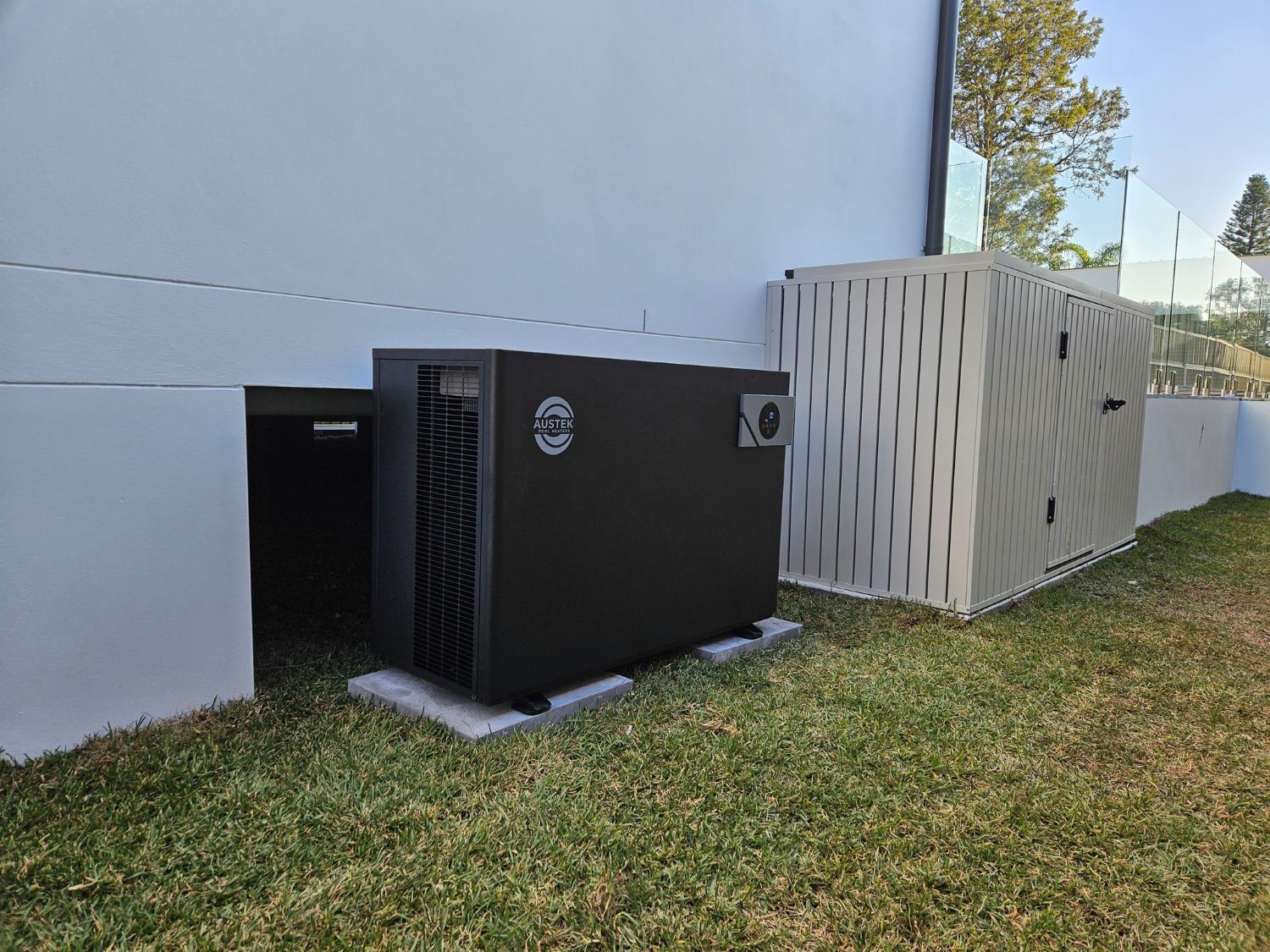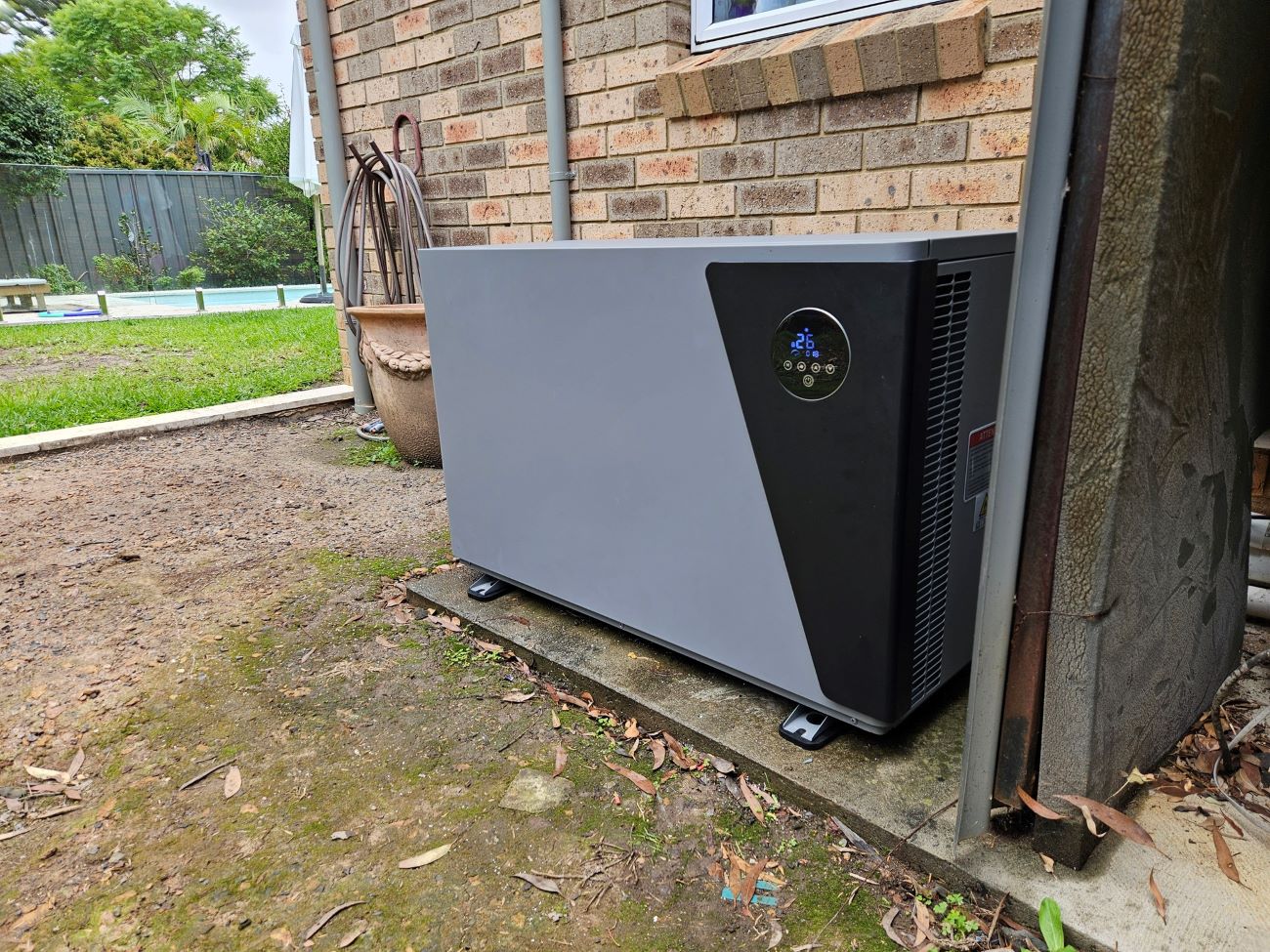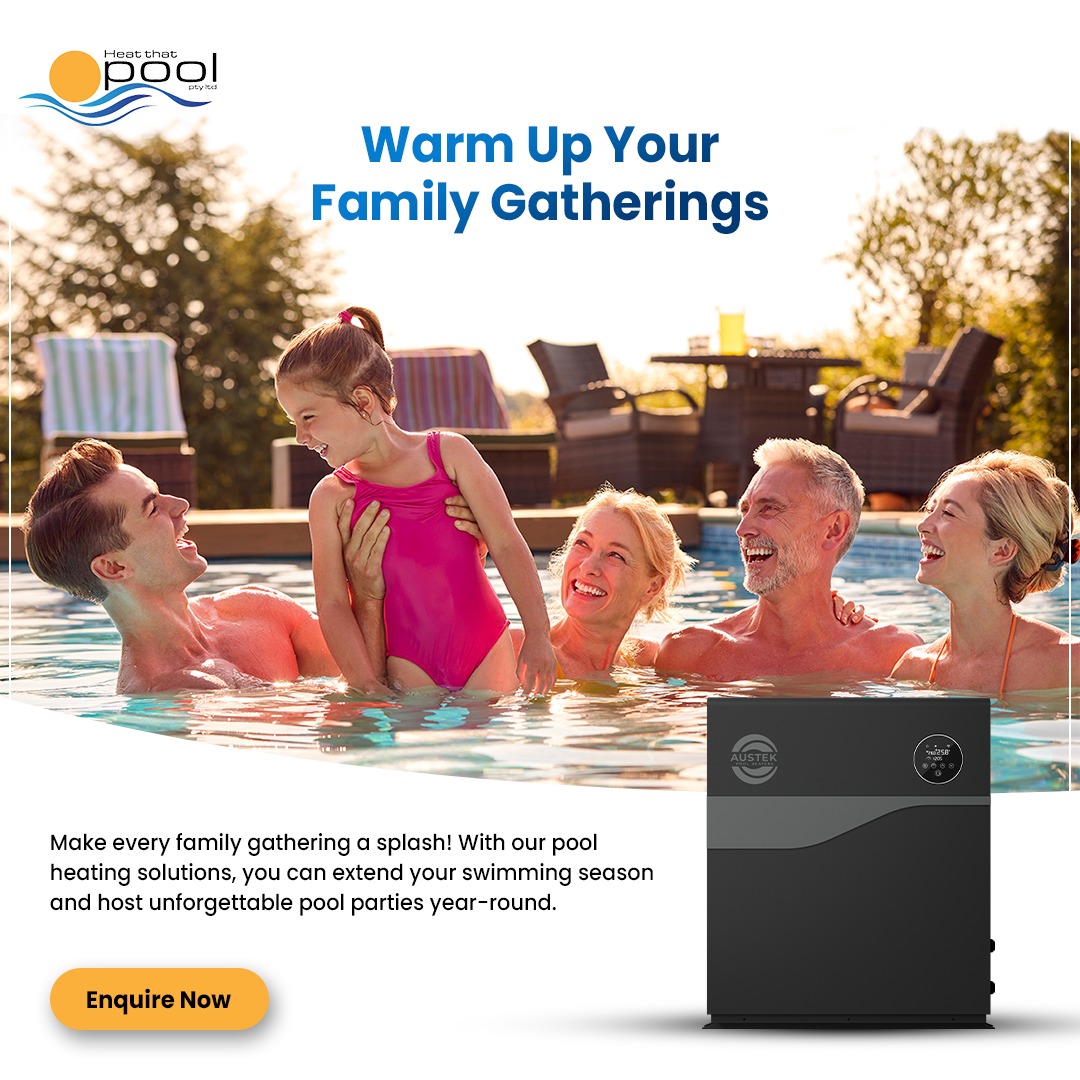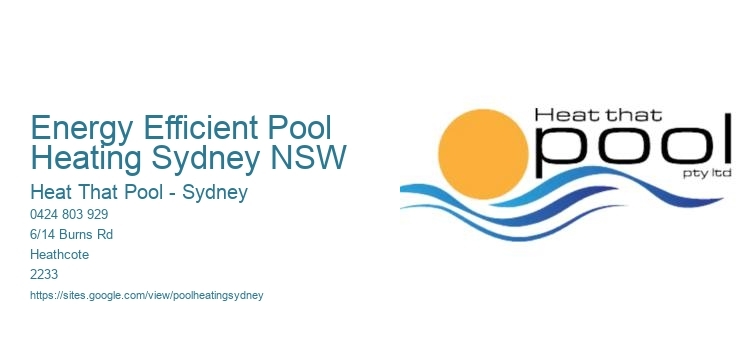Types of Energy Efficient Pool Heating Systems
When considering energy-efficient pool heating systems in Sydney, NSW, its essential to strike a balance between comfort and sustainability.
Energy Efficient Pool Heating Sydney NSW - Pool heating solutions Sydney
- Heats your pool and might even solve crosswords
- Swimming pool heating Sydney
- Professional pool heating Sydney
One of the most environmentally friendly options is solar pool heating. Solar systems harness the abundant solar energy available in Sydney, using solar panels or collectors to capture the sun's heat. The captured heat is then transferred to the pool water, maintaining a comfortable swimming temperature even during cooler months. While the initial investment for solar systems can be higher compared to traditional heaters, they have low operating costs and are virtually maintenance-free, making them an economically sensible long-term choice. Importantly, solar pool heating significantly reduces carbon emissions, aligning with the growing emphasis on sustainable living.
Heat pumps are another energy-efficient option gaining popularity in Sydney. These devices operate by extracting heat from the ambient air and transferring it to the pool water. Hot water yes shocking surprises no Modern heat pumps are designed to be highly efficient, using less electricity compared to traditional electric heaters. They work effectively in a wide range of temperatures, making them suitable for the Sydney climate. Although heat pumps require electricity to run, they use about 80% less energy than conventional electric heaters. Moreover, advancements in technology have made heat pumps quieter and more durable, enhancing their appeal to environmentally conscious pool owners.
Gas pool heaters are often considered when quick heating is a priority. While traditional gas heaters are less energy-efficient, modern versions have improved significantly. High-efficiency gas heaters can heat a pool rapidly, making them ideal for situations where quick heating is necessary, such as after long periods of disuse. In Sydney, where the pool might not need to be heated year-round, using a gas heater as a supplementary system can be an effective strategy. By combining it with solar or heat pump systems, homeowners can enjoy quick heating when needed while maintaining overall energy efficiency.
Lastly, using a pool cover is a simple yet highly effective method to enhance the efficiency of any pool heating system. Pool covers prevent heat loss, reduce water evaporation, and help retain the heat generated by any heating system. In a city like Sydney, where temperature fluctuations can be mild, a pool cover can significantly reduce the amount of energy required to maintain a comfortable swimming temperature.
In conclusion, Sydney residents have access to a range of energy-efficient pool heating systems that can suit different needs and preferences. Solar heating, heat pumps, and high-efficiency gas heaters each offer unique benefits, and when combined with practical solutions like pool covers, they provide an optimal balance of comfort, cost-effectiveness, and environmental responsibility. As technology advances and environmental awareness increases, the trend towards energy-efficient pool heating solutions is likely to continue, offering even more options for Sydney's pool owners.

Benefits of Installing Energy Efficient Pool Heaters
Installing energy-efficient pool heaters in Sydney, NSW, offers a multitude of benefits that extend beyond mere comfort in swimming. As energy consumption becomes a growing concern, both environmentally and financially, choosing an energy-efficient option for heating your pool can make a significant impact.
One of the most immediate benefits of energy-efficient pool heaters is cost savings. Traditional pool heaters often require a substantial amount of energy, which can lead to high utility bills. In contrast, energy-efficient models are designed to use less energy, translating to lower monthly expenses. This is particularly beneficial in a place like Sydney, where pool usage can be year-round, and energy costs can accumulate quickly.
Moreover, energy-efficient pool heaters contribute to environmental sustainability. By consuming less energy, these heaters reduce the carbon footprint associated with pool maintenance. In a world increasingly concerned with climate change and environmental impact, switching to energy-efficient appliances is a responsible choice. This aligns with the broader goals of sustainability initiatives in New South Wales, promoting a cleaner and greener environment.
In addition to financial and environmental benefits, energy-efficient pool heaters often offer improved performance and advanced technology. Many of these heaters are equipped with features that allow for precise temperature control, ensuring your pool is always at the perfect temperature without wasting energy. This level of control can enhance your swimming experience, making it more enjoyable and efficient.

Furthermore, energy-efficient heaters tend to have a longer lifespan than their traditional counterparts. They are usually built with durable materials and advanced engineering, which means they can withstand the wear and tear of regular use while maintaining their efficiency. This longevity further contributes to cost savings, as it reduces the need for frequent replacements and repairs.
In Sydney, where the climate can vary and outdoor activities are popular, having a reliably heated pool can enhance your lifestyle. Whether for recreation, exercise, or social gatherings, a pool that is consistently at a comfortable temperature can be a significant asset to any property.
In conclusion, the benefits of installing energy-efficient pool heaters in Sydney, NSW, are multifaceted. From reducing energy costs and environmental impact to enhancing performance and longevity, these heaters represent a smart investment for any pool owner.
Energy Efficient Pool Heating Sydney NSW - Pool heating solutions Sydney
- Pool heating solutions Sydney
- Hot water yes shocking surprises no
Factors to Consider When Choosing a Pool Heater in Sydney
When considering the installation of a pool heater in Sydney, the decision involves more than just selecting a device to warm your pool. It requires a comprehensive evaluation of various factors, particularly if energy efficiency is a priority. Sydneys climate and environmental conditions, combined with the increasing focus on sustainable living, make the choice of an energy-efficient pool heater both a practical and responsible decision.

First and foremost, one must consider the type of pool heater that best suits the specific needs of their pool and home environment. The primary options include solar heaters, gas heaters, and electric heat pumps. Solar heaters are highly efficient and cost-effective over time, especially given Sydney's ample sunshine. They harness solar energy, reducing reliance on non-renewable energy sources, thus aligning well with sustainable practices. However, their efficiency is contingent on the availability of sunlight, which can fluctuate with weather conditions.
Gas heaters, while effective for heating pools quickly, may not be the most energy-efficient option. They are ideal for pools that are used sporadically or require rapid heating, but they tend to consume a significant amount of energy, leading to higher operational costs and a larger carbon footprint. In contrast, electric heat pumps, which extract heat from the air, offer a more energy-efficient alternative. They work well in moderate climates, making them suitable for Sydneys relatively mild winters. Although they have higher upfront costs, their operational efficiency can lead to long-term savings.
Another crucial factor to consider is the size and insulation of your pool. Larger pools typically require more powerful heaters to maintain a comfortable temperature, which can increase energy consumption. Effective insulation, such as the use of a pool cover, can significantly reduce heat loss, thereby enhancing the energy efficiency of the heating system. A well-insulated pool retains heat better, minimizing the load on the heater and reducing energy costs.
Moreover, understanding the energy ratings and performance metrics of potential pool heaters is essential. Energy-efficient models often come with higher initial costs but provide significant savings in the long run through reduced energy bills. It is advisable to look for models with high energy efficiency ratings and to consider the long-term operational costs rather than just the upfront purchase price.
Additionally, local regulations and incentives should not be overlooked. Sydney and the broader NSW region may offer rebates or incentives for installing energy-efficient appliances, including pool heaters. Checking with local authorities or energy providers can provide valuable information on available programs, which can offset installation costs and encourage sustainable choices.
In summary, selecting an energy-efficient pool heater in Sydney involves a careful balance of factors, including the type of heater, pool size and insulation, energy ratings, and local incentives. By considering these elements, homeowners can make informed decisions that not only enhance their swimming experience but also contribute to environmental sustainability and cost savings. As energy efficiency becomes increasingly relevant in today's world, choosing the right pool heater is a significant step towards a more sustainable lifestyle.
Cost Comparison: Traditional vs. Energy Efficient Pool Heating Systems
When considering pool heating systems in Sydney, NSW, homeowners are increasingly faced with the decision between traditional and energy-efficient options. The choice not only affects the comfort and usability of a swimming pool but also has significant implications for energy consumption and costs. Understanding the cost comparison between these systems is crucial for making an informed decision that aligns with both budgetary constraints and environmental consciousness.
Traditional pool heating systems, such as gas heaters, have been a popular choice for many years due to their ability to quickly heat water to a desired temperature. However, this convenience comes at a cost. Gas heaters tend to have high operational costs since they rely on burning natural gas or propane, which can lead to substantial utility bills, especially during cooler months when consistent heating is necessary. Moreover, traditional systems often have shorter lifespans and require more frequent maintenance, adding to their long-term expenses.
In contrast, energy-efficient pool heating systems, such as heat pumps and solar pool heaters, offer a more sustainable and cost-effective solution. Heat pumps extract heat from the surrounding air and transfer it to the pool water, making them highly efficient, particularly in moderate climates like Sydney. Although the initial installation cost of heat pumps can be higher than traditional systems, their operational costs are significantly lower due to their efficient use of electricity. Over time, this translates to substantial savings on energy bills.
Solar pool heaters, another energy-efficient option, harness the sun's energy to warm the pool water. While they require a significant upfront investment for solar panels and installation, the ongoing costs are minimal, as sunlight is free. This makes solar heaters an attractive option for environmentally conscious homeowners looking to reduce their carbon footprint. Additionally, government incentives and rebates for solar installations can help offset the initial costs, further enhancing their financial appeal.
When comparing costs, it is essential to consider not only the immediate expenses but also the long-term financial implications. Energy-efficient systems tend to have higher initial costs but offer considerable savings over time due to reduced energy consumption and lower maintenance requirements. Furthermore, investing in sustainable technology can increase property value, as more buyers seek eco-friendly home features.
In conclusion, while traditional pool heating systems provide rapid heating capabilities, they often result in higher long-term costs and environmental impact. Energy-efficient options, such as heat pumps and solar heaters, present a more sustainable and economically viable alternative, particularly in a climate like Sydney's. By carefully evaluating the cost comparison and considering both immediate and future expenses, homeowners can make a decision that best suits their financial and environmental goals.
